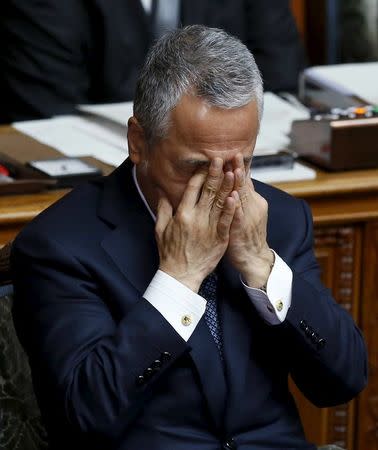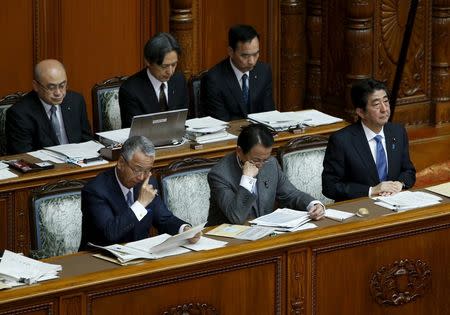Japan's economy minister resigns over money scandal, denies bribery
By Stanley White and Leika Kihara TOKYO (Reuters) - Japanese Economy Minister Akira Amari said on Thursday he was resigning to take responsibility for a political funding scandal that has rocked the government, but denied having taken bribes. In a packed news conference televised live, Amari acknowledged taking money from a construction company executive but said he told his aides to correctly record them as a political donation. While asserting his legal innocence, Amari, a key player in Prime Minister Shinzo Abe's policy team, said he was stepping down to prevent the scandal from being a distraction to his administration's drive to pull the country out of deflation. "Japan is finally emerging from deflation," he said. "We need to pass legislation through parliament for steps to beat deflation and create a strong economy as soon as possible." "Anything that hampers this must be eliminated, and I'm no exception. I, therefore, would like to resign as minister to take responsibility" for what he said his aides had done. Part of the money has gone missing because of mishaps by his secretaries, Amari said, but two of them have resigned and he must take responsibility as their supervisor. Just hours before the news conference, Amari had said he would fulfil his duties as minister "with utmost effort". Last week, Japanese magazine Shukan Bunshun published an article accusing Amari and his aides of accepting money from an unnamed construction company in exchange for helping that firm receive government compensation for disputes over land ownership and waste removal at a public works site. Amari is a close ally of Prime Minister Shinzo Abe and core member of his policy team. Amari has played a leading role in the prime minister's economic policies, and led Japan's negotiations for the Trans-Pacific Partnership free trade bloc. The accusations on bribery come at a sensitive time because policy makers are already grappling with a stock market sell-off, a rising yen and worries about a weakening global economy. (Additional reporting by Kaori Kaneko; Editing by Chang-Ran Kim, Ryan Woo and Jacqueline Wong)






